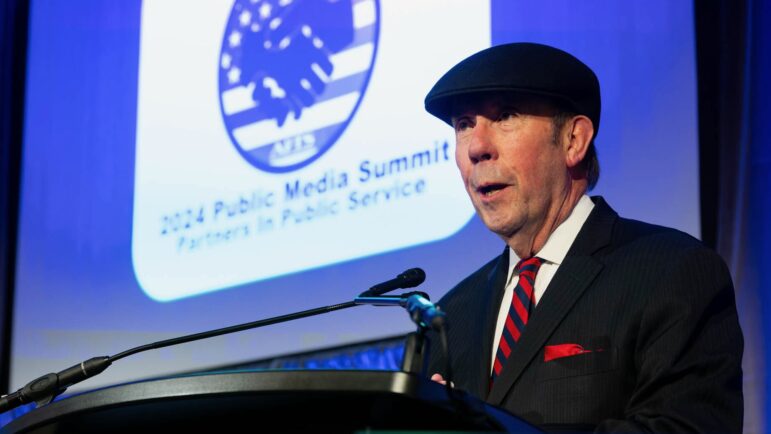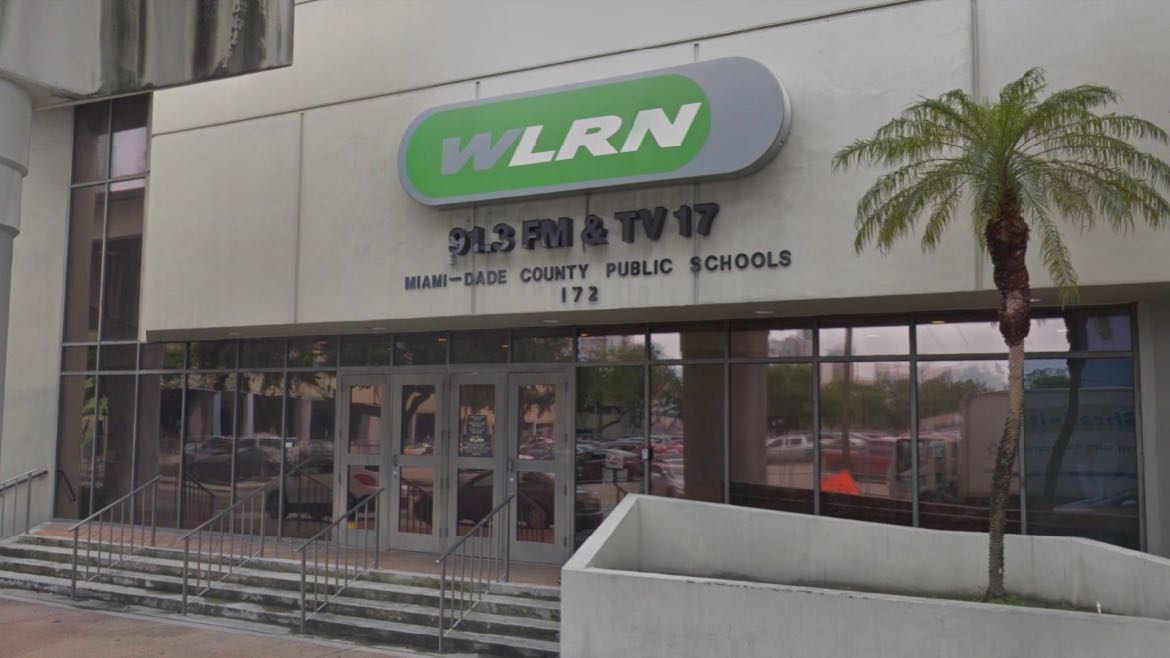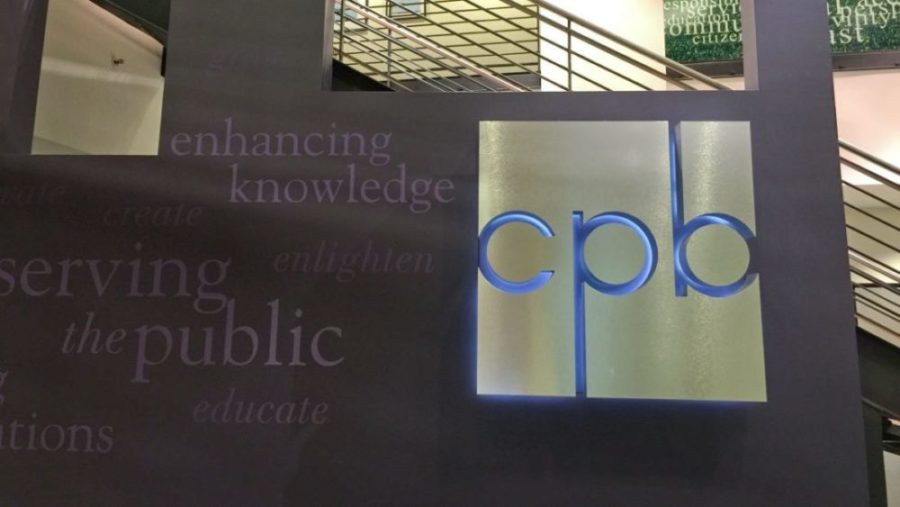CPB defunding and reauthorization are scary. We should talk about them anyway.

Inside the Magic / Flickr
When I started writing this column about the future of federal funding, President Biden was trailing in the polls, Donald Trump had just survived an assassination attempt, and unified GOP control of Congress seemed more likely than not.
What a difference a few weeks can make! Now, the Democrats seem as likely as Republicans to take unified control of Congress and the presidency. Even more likely is divided government, where no one party will control the presidency and both houses of Congress.
If you like the status quo for CPB funding, divided government is your friend. It has protected a funding model that is essentially frozen in time, devised before the digital age and only tweaked since.
But recent events should be a wake-up call for leaders in the system. The truth is, unified control of Congress and the presidency has been in place for 10 of the last 24 years.
Each time one party gains unified control, there’s an opportunity for big changes — in funding amounts, in how funding is directed, and even in the law creating CPB (a process called reauthorization.)
For this column, I spoke with several leaders in organizations that represent the interests of public media. Few wanted to go on the record, especially about the sensitive issues surrounding funding cuts and reauthorization.
That made me wonder, does talking about these sensitive issues in public make them come to life?
Call it the Beetlejuice effect. Say Beetlejuice three times and he appears. Say “defunding” or “reauthorization” three times and it happens.
Since the 1990s, our federal strategy has been:
- Play down culture-war controversies — take the heat out of these issues
- Emphasize our local impact, especially in red districts — again, to lower the temperature and make defunding less of a priority for opponents
- Rely on our moderate GOP friends in Congress — especially on appropriations committees — to quietly protect our funding
It’s hard to argue with success. Despite being targeted time and again by GOP lawmakers and the Trump administration, our funding has remained relatively intact.
Even so, we should be prepared for anything this election throws our way. We need to drag the monster out from under the bed, look it in the eyes and call it by name.
Monster #1: Defunding
If history is any guide, unified GOP control does not guarantee defunding. The last time the GOP was fully in charge was 2017–18. Trump’s budget proposed defunding CPB. But our friends in Congress didn’t listen, and the Trump administration didn’t make CPB a top priority.
Still, the threat is real. The Heritage Foundation’s “Project 2025” has an entire section devoted to defunding CPB. It proposes eliminating all federal funding for public media, ending the two-year advanced funding mechanism and revoking our noncommercial educational status for our FCC licenses.
“Stripping public funding would, of course, mean that NPR, PBS, Pacifica Radio, and the other leftist broadcasters would be shorn of the presumption that they act in the public interest and receive the privileges that often accompany so acting,” it says. “They should no longer, for example, be qualified as noncommercial education stations (NCE stations), which they clearly no longer are.”
Now, several caveats. Project 2025’s leaders may have close ties to Trump and his advisers, but when Project 2025 became controversial, Trump disavowed it.
Meanwhile, one communications attorney is skeptical that the FCC would or could strip public media stations of their NCE status.
“It’s political theater,” said Brad Deutsch, a lawyer with the firm Foster Garvey PC who works for several public media organizations. He said stripping NCE status from public media stations would run afoul of FCC rules on content neutrality, as well as the First Amendment.
Most importantly, public media still has powerful friends in Congress.

“We start with a good base of support among Republicans as well as Democrats,” said Pat Butler, outgoing leader of America’s Public Television Stations.
Several winners of APTS’s “Champions of Public Broadcasting” hold positions on key committees like Appropriations and Commerce.
“If a newly elected President Trump wanted to get serious about defunding us, he’d have a fight on his hands,” Butler said.
Defunding isn’t the only option on the table. Congress could reduce CPB funding or change where it goes.
In a recent House hearing, some Republican lawmakers praised local stations while criticizing NPR. A unified GOP could try to restrict CPB money going to NPR, either directly or indirectly.
Is this a strategy to split local stations from their national partners? If so, Butler thinks it won’t succeed.
“The great majority of the American people give high marks to what we do at the local and national level,” Butler said.
“What’s new is that more [GOP] lawmakers are saying good things about local stations,” he said. “We’ve persuaded them of our value, and we think this recognition will help us win the day.”
Monster #2: Reauthorization
The last time Congress reauthorized CPB, George H.W. Bush was president, the World Wide Web was in its infancy and Whitney Houston dominated the pop charts with her version of “I Will Always Love You.”
It’s been more than 30 years since then, and despite several proposals to “reopen” the law, reauthorization hasn’t happened yet. Give the credit (or blame) to division and dysfunction in Congress.
That means the ground rules for our system haven’t changed with the times. It’s been three decades since Congress looked at our system, made changes and validated its existence on behalf of the American people.
The fear among some public media leaders is that reauthorization would open a Pandora’s box of badness: unfair reporting requirements, interference in editorial independence and restrictions on our funding. It opens up the possibility of the end of CPB.
In addition, a growing number of non-broadcast local news outlets are seeking government funding. This idea is coming from both the left and the right. In a reauthorization process, they would probably ask to qualify for CPB funding.
Behind closed doors, some public media leaders have discussed bringing forward reauthorization themselves. The thinking is, it’s better these changes start with us than happen to us. We could make the case for continued federal support for public media in this new digital age.
I believe we should be ready. Even for Washington, it’s been a LOOONG time since CPB was reauthorized. No federal program escapes reauthorization forever.
But for now, I don’t expect public media leaders to chant “Reauthorization! Reauthorization! Reauthorization!” Summoning this change is still too scary.
Scott Finn is a former public media journalist and GM and is the owner of Finn Advising.






